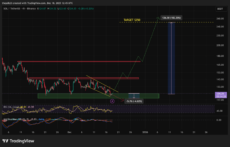PetroChina is considering a Hong Kong license to issue a stablecoin.
- PetroChina studies issuance of yuan-backed stablecoin
- HKMA welcomes applications after Stablecoin Ordinance comes into effect
- Stablecoins can reduce costs in international trade
Chinese state-owned PetroChina confirmed that it is considering obtaining a stablecoin issuer license in Hong Kong, signaling the company's interest in exploring the use of these digital assets in international trade. The information was disclosed by the company's board of directors during its half-year earnings conference call.
According to the CFO of the China National Petroleum Corporation (CNPC) subsidiary, the company will begin feasibility studies on the use of stablecoins in international settlements and payments. This move makes PetroChina among the first state-owned companies in the country to officially consider issuing a stablecoin pegged to the yuan.
The initiative follows the entry into force of Hong Kong's Stablecoin Ordinance on August 1, establishing the regulatory framework for issuers. Since then, institutions such as Ant Group, JD Coin, Standard Chartered, and China Telecom have expressed interest in applying for registration to launch yuan-backed stablecoins. To date, the Hong Kong Monetary Authority (HKMA) has not issued any licenses, but has set September 30 as the deadline for submitting applications, with the first approvals expected before the end of 2025.
On the global stage, stablecoins gained traction after the passage of the GENIUS Act in the United States, which prompted similar regulations in other regions. China, for its part, maintains an ambiguous stance. While some agencies are testing renminbi-backed stablecoins to reduce dependence on the US dollar, other government sectors are cautious, fearing the risks of fraud and misuse.
Use cases are beginning to emerge within the country. A pilot project on Shenzhen Metro Line 8, conducted in partnership with Xiongdi Technology, showed that the use of stablecoins significantly reduced exchange rate losses in international transactions compared to the traditional SWIFT system.
For companies like CNPC, which moves nearly 300 million tons of hydrocarbons annually across more than 50 countries, adopting stablecoins could represent significant gains in efficiency and competitiveness. However, the final decision will depend on regulatory developments in China and the response of its trading partners to the adoption of yuan-pegged stablecoins.
Disclaimer: The content of this article solely reflects the author's opinion and does not represent the platform in any capacity. This article is not intended to serve as a reference for making investment decisions.
You may also like
Stunning Bitcoin Price Prediction: Could BTC Really Hit $1.42 Million by 2035?
NEAR Supported on Solana: A Revolutionary Cross-Chain Leap for Users
Bitwise Sees Solana Hitting Records in 2026: Major Rally Incoming?

Intuit USDC Integration: A Revolutionary Step for Crypto Tax and Accounting
